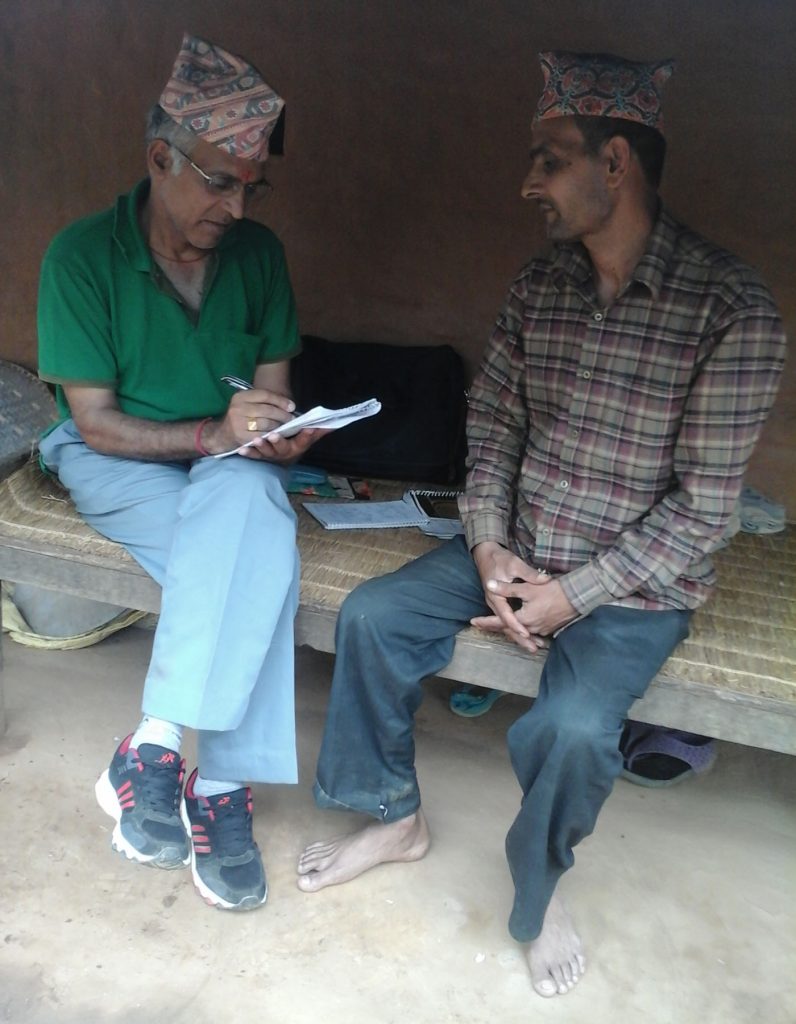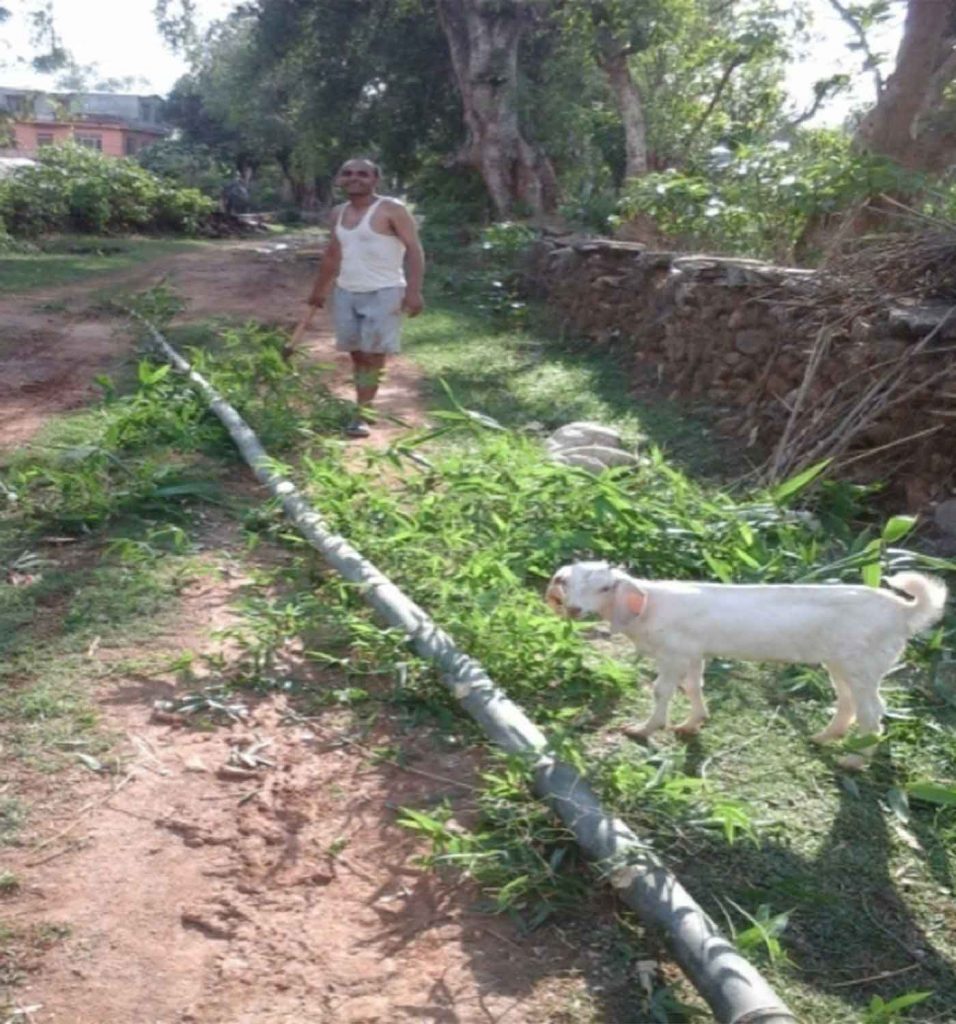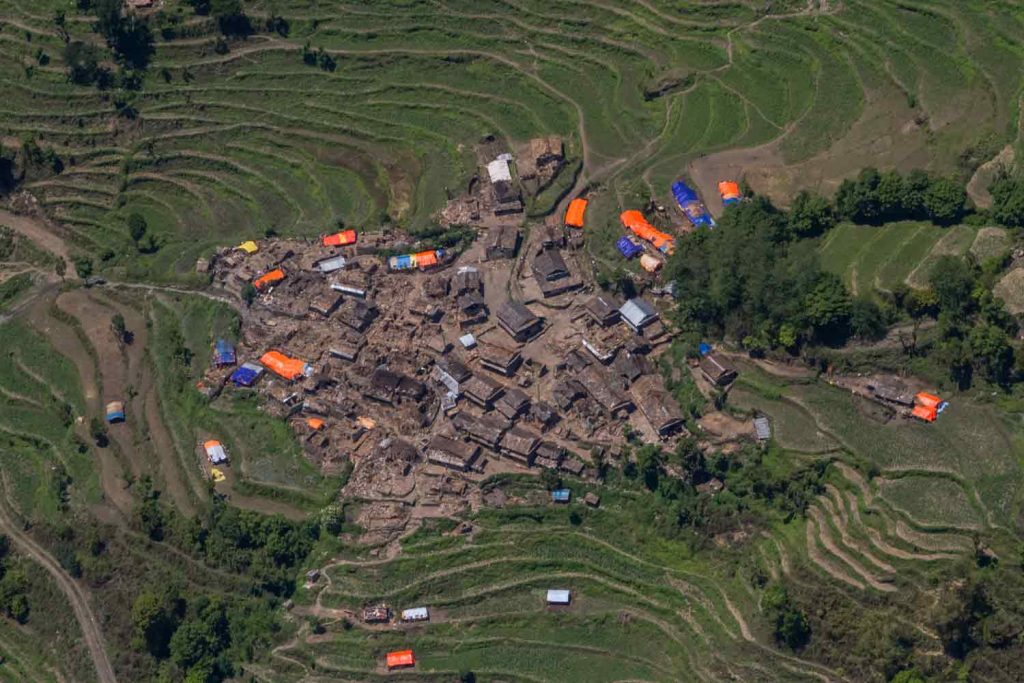This is the story of Rohini Prasad Basaula, 45, from the village of Salyantar in the central Nepal district of Dhading near the epicenter of the magnitude 7.8 earthquake that struck Apri 25, 2015. To assist those who survived amid the ruins in Dhading, International Medical Corps provided mental health and psychosocial support (MHPSS) for residents of the hard-hit area, including Rohini and his family. Rohini worked as a teacher and holds a degree in Education from Kathmandu University. He lives with his wife, three daughters, and son.
Following the massive earthquake that struck Nepal and claimed over 8,000 lives in April 2015, Rohini was diagnosed with depression and sought treatment at Patan Hospital in Kathmandu. He suffered from anxiety attacks, insomnia, and mood swings and doctors prescribed medication for him.
His symptoms predated the earthquake, first beginning in 2001 when he was teaching at a high school in a nearby district. Rohini quit his job and returned home to Salyantar, where he rarely went out of the house. Local youth began teasing him and threatening him with physical attacks. As he sank deeper into depression, he found it difficult to cope even with life’s simple tasks. He either wandered aimlessly or stayed at home doing nothing. His relationships with family members suffered because he would borrow money from others without telling anyone.

Following the earthquake, a Community Health Volunteer from Rohini’s village referred him for psychosocial counseling under International Medical Corps’ MHPSS Project which has been operating in Dhading district through its Nepalese NGO implementing partner, Integrated Community Development Campaign (ICDC). ICDC’s Psychosocial Counselor Laxmi Kanta Ghimire recalled that Rohini appeared introverted at the initial stage of counseling and exhibited social behavioral problems. Rohini was suspicious, trusted few of those around him, and consequently did not share his feelings with others.
However, the psychosocial counselor was able to establish a rapport that enabled Rohini to discuss his problems during their sessions together. Rohini told his counselor he had no interest to work. He seemed frustrated with the lack of understanding or empathy for his condition both within his family and in the community. People chastised him both for his behavior and also because he was a mental health patient who required medication to function.
Based on this experience, the psychosocial counselor set up family counseling, bringing Rohini together with family members. During this session, family members complained that Rohini spent money when they weren’t there and took no responsibility for household duties. He assured them he would change and promised to follow his family’s suggestion that he be more outgoing.

Deep breathing was also used during counseling. In the next session, he said he was now feeling “lighter” and more comfortable. He said has been looking for a job to help ease the family’s financial situation and was consulting and coordinating closely with family members about his activities. To deal with his depression, Mr. Basaula is currently combining counseling administered by ICDC together with medication from Patan Hospital.
Nowadays, Rohini seems a bright, happy, cheerful—even confident—man. He enjoys being around his neighbors and relatives. He does not hesitate to expressing his feelings, opinions, and experiences with them and involves his family in decision-making. He is also getting support from them. He takes his medications regularly each evening and exercises regularly. He has a positive attitude towards life and says he wants to make it even better.
In fact, he plans to start his own business, farming vegetables in his village of Salyantar, using the income to improve his economic status. Thanks to International Medical Corps’ MHPSS project and the involvement of local partners, Rohini continues to do well. Community-based social workers visit him regularly to make sure he is getting his medications on time and receiving the support that he needs.
